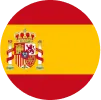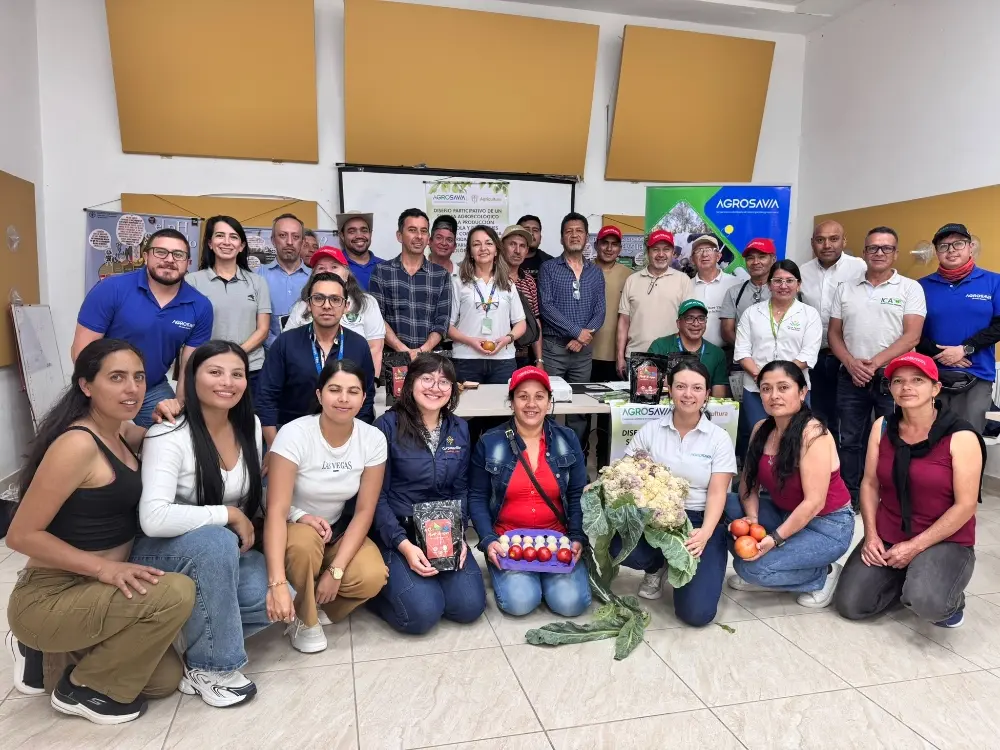August 15, 2025. Colón Génova, Nariño. The municipality was the setting for an important meeting within the framework of the project “Participatory Design of an Agroecological System for the Production of Horticultural Crops and Minor Species as a Strategy for Food Security and Sovereignty in the ZRC (for its Spanish acronym) [Peasant Reserve Zone]of Colón Génova.” The event brought together producers associated with the project, representatives of farmers’ associations, the Municipal Mayor’s Office, Banco Agrario, the Regional Autonomous Corporation of Nariño (Corponariño), the Financial Fund for the Agricultural Sector (Finagro), the Government of Nariño, the Colombian Agricultural Institute (ICA), representatives of the Sinchisuyu project, municipal educational institutions, among others, totaling 45 strategic stakeholders who, together with the community, developed a roadmap to strengthen the territory’s agroecological systems.
During the session, the territorial prospective planning and MicMac structural analysis methodology was applied, identifying and prioritizing key variables in the environmental, social, economic, and political-institutional dimensions. The working groups and plenary sessions allowed the integration of local knowledge with technical and institutional perspectives, reaching consensus on the challenges, opportunities, and necessary actions to diversify crops, strengthen food security, and consolidate transition processes toward sustainability. Participants emphasized the importance of inter-institutional coordination as a strategy for agroecological development, a condition that positions Colón Génova as a regional benchmark.
The Director of the Sustainable Intensive Production Department at AGROSAVIA, Dr. Marta Marina Bolaños, stated that the National Agroecology Plan (PlanA), promoted by the Ministry of Agriculture and Rural Development —within which the project is framed— seeks to generate knowledge in a participatory manner, integrating farming communities, local authorities, academia, and regional and national actors to implement the public agroecology policy. Furthermore, regarding this pilot, she indicated that “its prioritization due to progress toward the establishment of the Peasant Reserve Zone and its focus on agroecological homegardens, vegetables, and minor species such as laying hens, allows complementing the main coffee-based production system and contributes to strengthening families’ food security and sovereignty through diet diversification and the recovery of sustainable practices.”
The research team from AGROSAVIA’s Obonuco Research Center highlighted the commitment of territorial actors and their potential to promote the widespread adoption of agroecology. In each working group, the actors and the facilitating researcher gathered the main ideas discussed. For example, Diego Cortés, MSc. Researcher emphasized “the agroclimatic potential and soil fertility present in the municipality of Colón, favorable for agriculture; likewise, he heard the community’s clamor to continue conserving water in the territory and protecting the forests.”
Roberto Argoti, agronomist and specialist in crop production, affirmed “the need to recover local seeds and promising crops that could increase farm agrobiodiversity. The conditions are optimal to promote diversification under an agroecological framework.” These are some of the important reflections developed, which concluded with the commitment to continue formulating strategies to strengthen the territory’s sustainability and social fabric.
The inputs generated in this meeting can guide the project’s future actions and the municipality’s vision, reaffirming the collective commitment to resilient, sustainable territorial development rooted in the community’s own knowledge.
- More information here:
- Mónica Milena Burbano
- Communications, Identity and Corporate Relations Professional
- Research Center Obonuco
- Communications, Identity and Corporate Relations Advisory Office
- mmburbano@agrosavia.co
- AGROSAVIA





